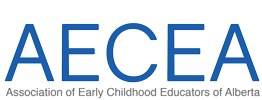AECEA often hears questions from educators about the different types of organizations that exist to support or represent professionals. This FAQ is intended to provide clarity about what associations, colleges, and unions are, how they differ, and where AECEA fits within this landscape.
Why is AECEA sharing this information?
We know that the early learning and child care (ELCC) sector can be complex, with many organizations playing different roles. AECEA is sharing this information to help educators understand how these organizations differ and how each can contribute in its own way to supporting, representing, or regulating professionals in Alberta.
| Term | Purpose/Function | Legal/Regulatory Role | Examples |
|---|---|---|---|
| Association | Advocates for members’ professional interests, offers networking, professional development, and sector support. | Is typically voluntary, may influence policy but cannot enforce licensing or legal standards. | Association of Early Childhood Educators of Alberta (AECEA) – advocates for ECEs, provides professional development, resources, and networking opportunities. |
| College | Regulates a profession, ensuring members meet education, certification, and practice standards; may handle licensing and discipline. | Has statutory authority under provincial legislation; can enforce professional standards and codes of conduct. | College of Early Childhood Educators (Ontario) – ensures ECEs meet professional standards. |
| Union | Represents employees in negotiating wages, benefits, working conditions, and advocating for workplace rights. | Legally recognized to bargain collectively on behalf of members. | Canadian Union of Public Employees (CUPE) – represents ECEs employed in certain child care settings (generally municipally owned/operated child care). |
Key differences:
- Association: profession-focused, voluntary, supports members through advocacy, education, and community building.
- College: profession-focused, legally empowered to regulate practice and enforce standards.
- Union: workplace-focused, legally empowered for collective bargaining.
Association, College, Union FAQ
What is an association?
A professional association is a voluntary organization that advocates for its members and supports professional growth, recognition, and community. Associations typically do not regulate or bargain on behalf of members but focus on advocacy, professionalization, and sector development. Membership is voluntary.
Example: The Association of Early Childhood Educators of Alberta (AECEA).
What is a college?
A college is a regulatory body established by legislation to oversee a profession to ensure public safety. It sets education and practice standards, grants licenses or certifications, and may handle professional conduct and discipline. Membership is mandatory in any regulated sector.
Example: The College of Early Childhood Educators (Ontario) regulates ECEs to ensure consistent professional standards.
(Note: Alberta does not currently have a college for early childhood educators.)
What is a union?
A union is an organization that represents employees in negotiating wages, benefits, and working conditions with their employers.
Unions have legal authority to engage in collective bargaining and advocate for members’ employment rights. Membership is mandatory along with dues.
Example: Canadian Union of Public Employees (CUPE) – represents ECEs employed in certain child care settings (generally municipally owned/operated child care).
What type of organization is AECEA?
AECEA is a professional association.
It advocates on behalf of Alberta’s early childhood educators for professional recognition, fair compensation, and system-wide improvements. It also provides professional learning opportunities, sector information, and a community for educators.
Is AECEA a union?
No. AECEA is an association and does not engage in collective bargaining or negotiate employment terms. AECEA is also not attempting to unionize early childhood educators. Our work focuses on advocacy for professionalization, partnership development, and pride in the profession. AECEA’s work focuses on system-wide change that benefits all educators, not just those employed by specific organizations.
Why is unionizing the ELCC sector in Alberta complex?
Unionizing the sector is challenging because:
- The workforce is spread across many different types of employers (non-profit, private, public, and family day homes).
- Employment arrangements vary widely, making it difficult to form a single bargaining unit.
- License holders may resist unionization, fearing increased costs or loss of management flexibility.
- In a care-based profession, going on strike can be difficult since it directly affects families and children.
- Union dues may be expensive, especially with already low wages.
These complexities mean that while unions can play an important role in improving working conditions and employment stability, they may not address broader concerns around professional identity and professionalism. AECEA’s work focuses on system-wide change that benefits all educators, not just those employed by specific organizations.
How does AECEA support educators?
AECEA supports educators by:
- Advocating for fair compensation, recognition, and strong system supports.
- Offering professional learning and networking opportunities.
- Sharing information, research, and policy updates.
- Representing educators’ voices in provincial and national conversations about the ELCC sector.
Do early childhood educators in Alberta have the right to join a union?
Yes. Like all employees in Alberta, early childhood educators have the legal right to join or form a union. Unionization is one way that workers can collectively negotiate wages, benefits, and working conditions with their employers.
AECEA’s role is to advocate for the professional recognition and system-wide support of the early learning and child care workforce; work that complements but differs from the collective bargaining functions of unions.
Educators who would like to learn more about unionization can find impartial information through the Alberta Labour Relations Board, which provides guidance on workers’ rights and the union certification process.
Can early childhood educators walk off the job or go on strike without being in a union?
In Alberta, employees who are not part of a certified union do not have the legal right to strike. Strikes are only protected under the Alberta Labour Relations Code when they are carried out by unionized employees following specific legal procedures, including a vote, notice period, and mediation steps.
If you are not represented by a union, walking off the job is not considered a legal strike and may be treated as a resignation or abandonment of employment by your employer. This could have employment or contractual consequences.

